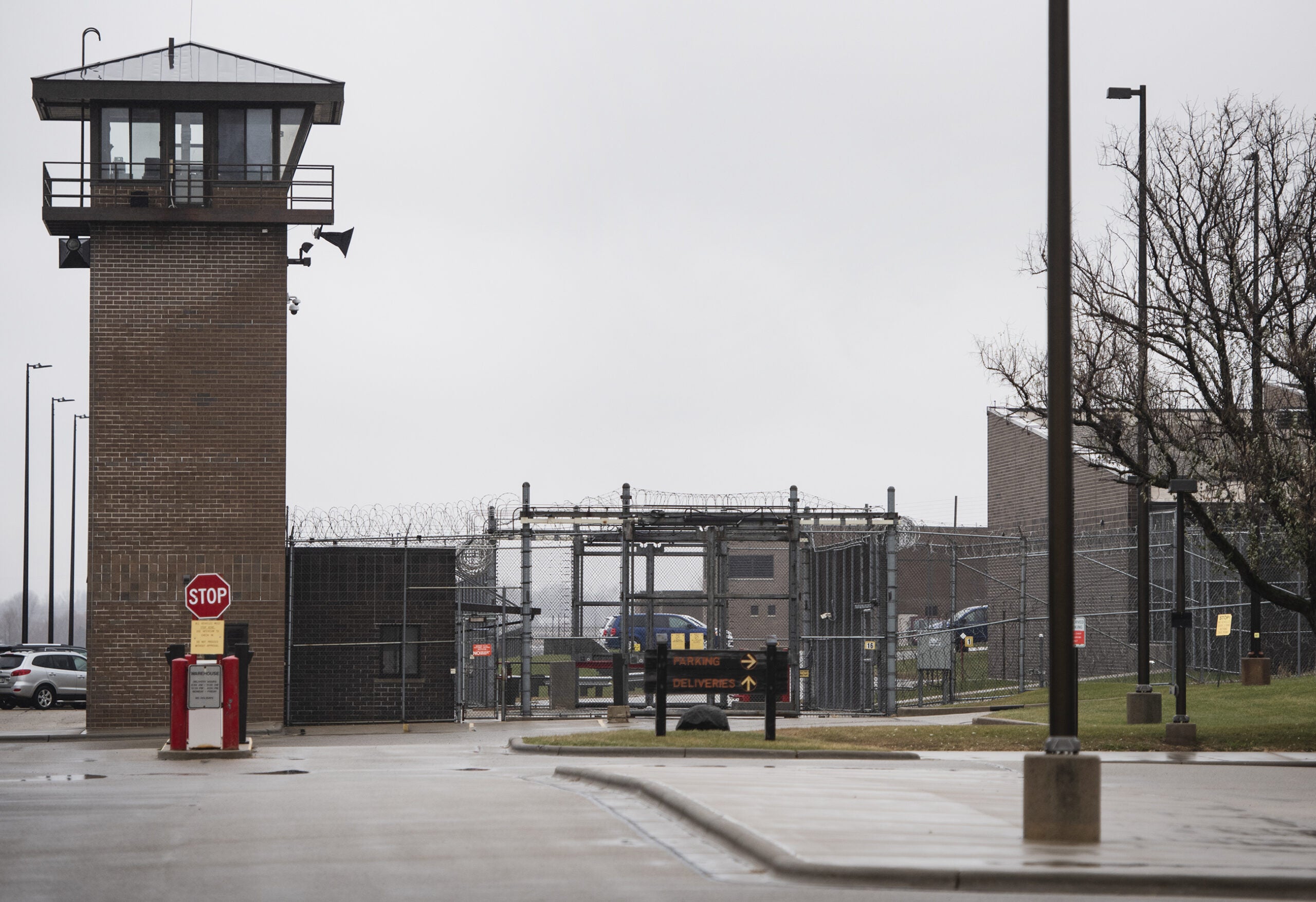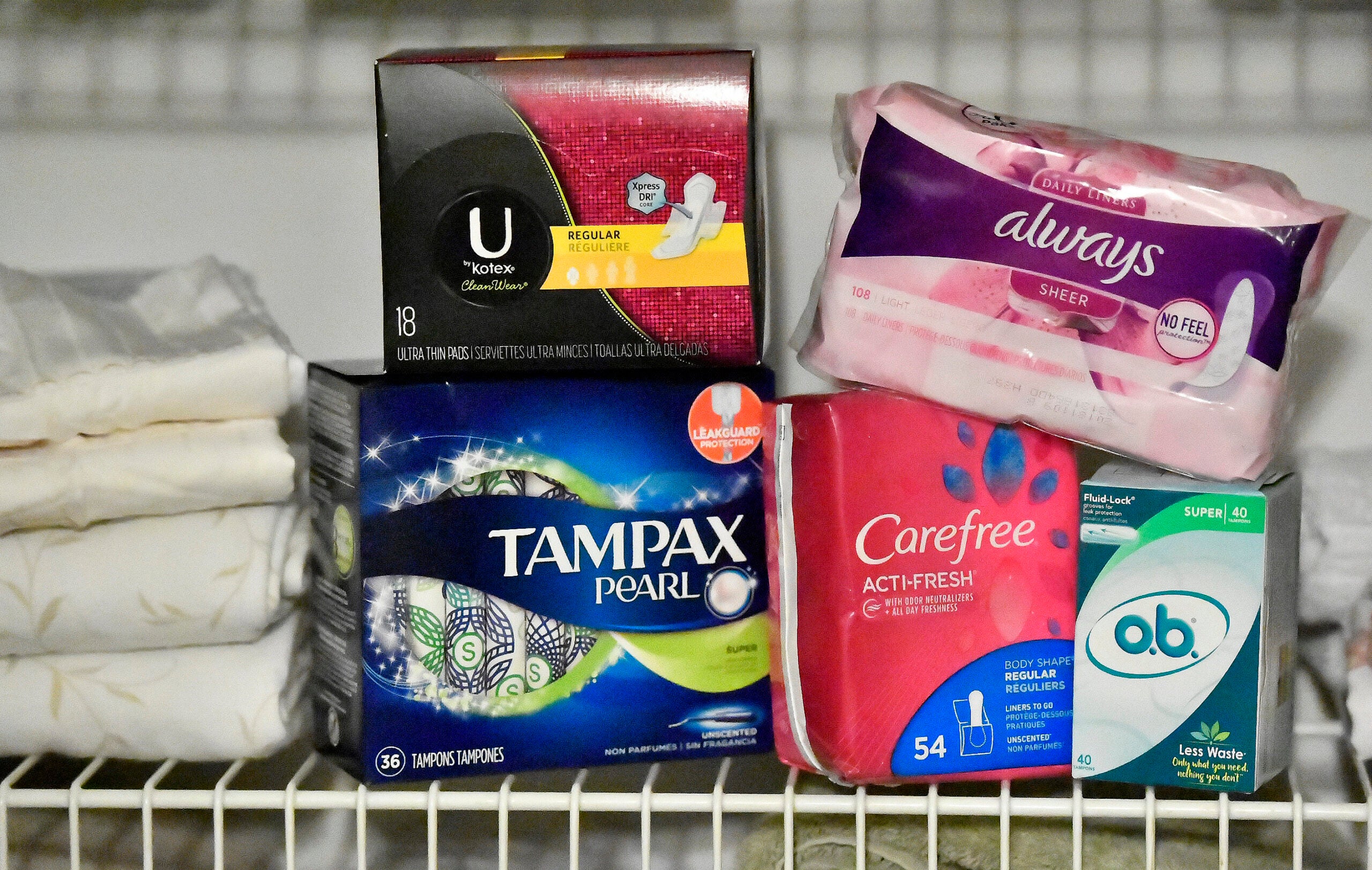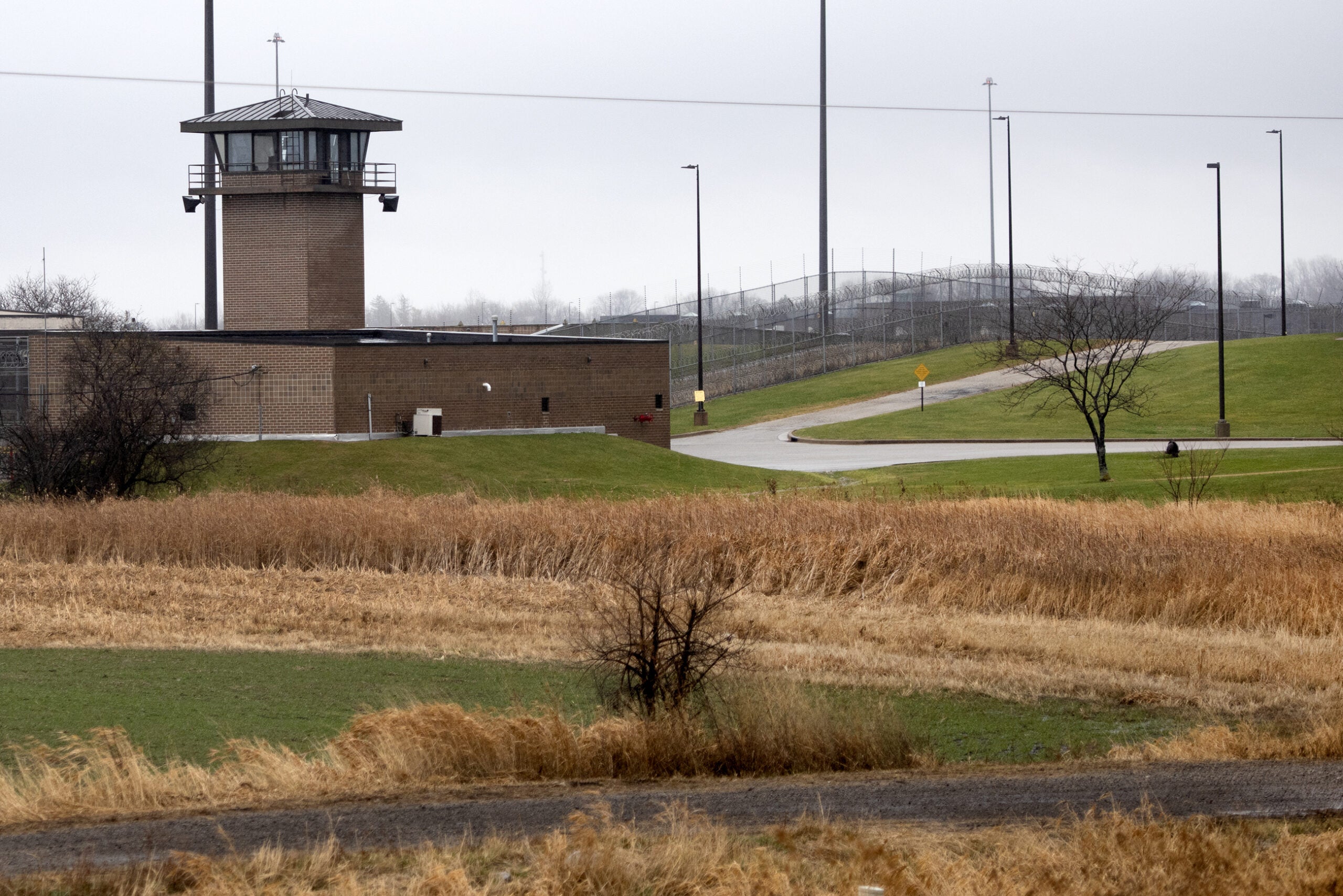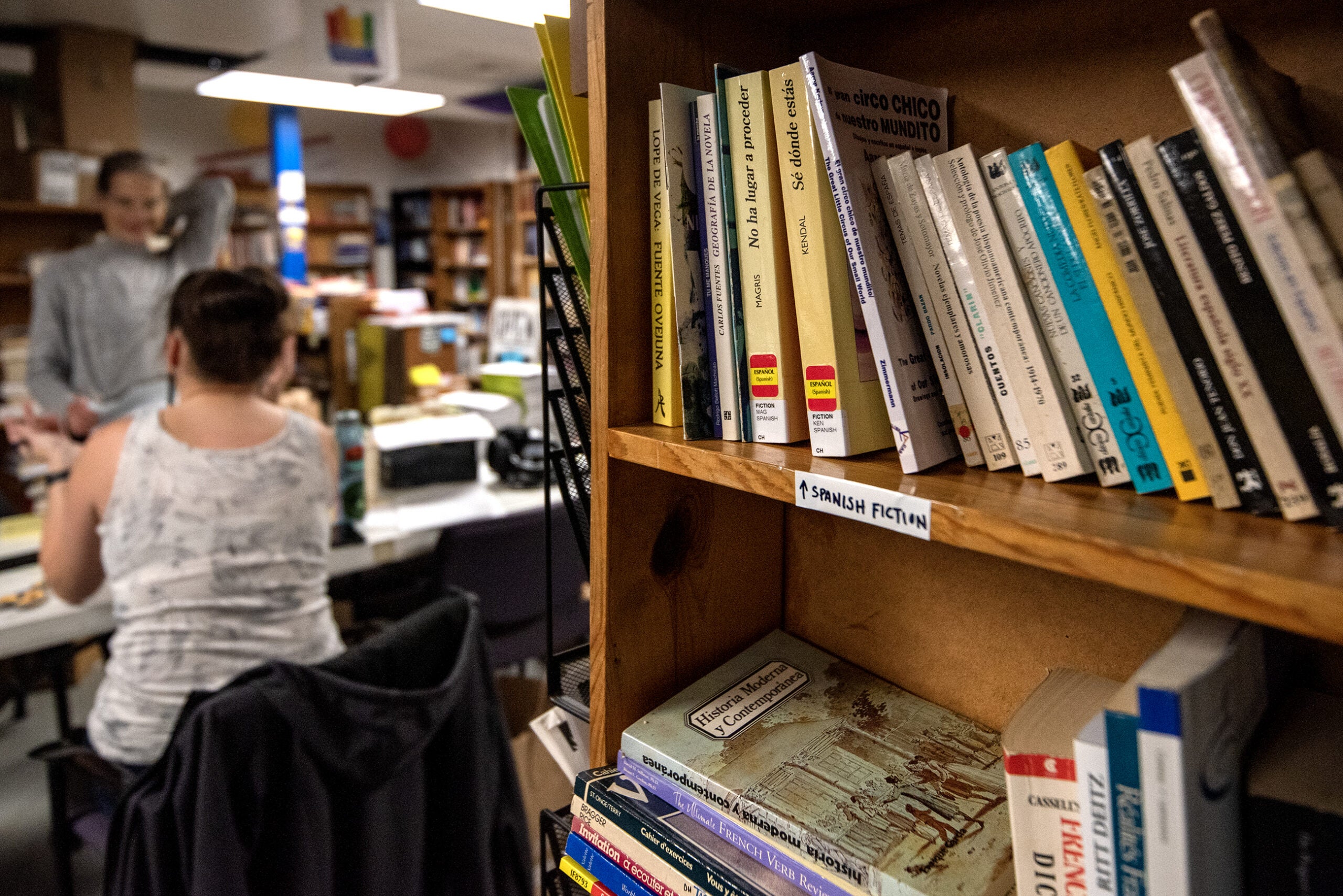The Wisconsin Department of Corrections reopened state prisons for in-person visits Tuesday.
State officials suspended visits in January after COVID-19 cases among inmates tripled in one week.
According to the DOC’s COVID-19 dashboard, there were 66 active COVID-19 infections among people in DOC care and 22 active cases among employees as of Monday.
News with a little more humanity
WPR’s “Wisconsin Today” newsletter keeps you connected to the state you love without feeling overwhelmed. No paywall. No agenda. No corporate filter.
The agency also reported that 16,033 people in DOC care, or 81 percent, were fully vaccinated against the disease.
DOC Secretary Kevin Carr said in a press release last week that they appreciate the patience of people in their care and their families throughout the pandemic.
“Family connection during incarceration has shown to have a positive impact on success upon return to the community, and in-person visitation is one way of maintaining that connection,” Carr said in the press release.
Anyone visiting a correctional institution will still be required to follow current COVID-19 guidance. A DOC spokesperson said Tuesday that all visitors are currently required to take a rapid test or show proof of a negative test within 72 hours of a visit. Visitors are also required to wear masks and answer screening questions.
This is the second time DOC has reopened state prisons for in-person visits during the pandemic. The agency initially closed facilities to all but essential personnel at the beginning of the pandemic in 2020. When case numbers declined in 2021, state officials opened facilities for in-person visits last July.
Ramiah Whiteside is associate director of Ex-incarcerated People Organizing, or EXPO, an advocacy group for people who are or were formerly incarcerated. He said the second shutdown of in-person visits in January caused “emotional whiplash” for many inmates, with the shock of suddenly having access to their loved ones limited again.
“I know a lot of people really depend on the visits that they do get. It could be from a mom or dad, or like I said, if you have children, you really depend on and look forward to those times together,” Whiteside said. “To have it open back up and then kind of abruptly go back down, that’s definitely a psychological, emotional whirlwind to say the least.”
Whiteside said the DOC’s efforts to provide some free phone calls and video visits for inmates have been helpful, but the remote connections can’t fully substitute for an in-person visit.
He said the shutdown of in-person visits during the pandemic has not just had an effect on people who are incarcerated but on their family members as well.
“You have to really look at the kids. You know, look at the bond that you have with a mom and a child or a father and a child, just how important it is for them to actually bond and be around their parents on a positive note,” Whiteside said. “I think people always look at it from the narrative or the perspective of the person incarcerated. But these things are just as important for the people out in the community.”
Shannon Ross is executive director of The Community, a group that helps formerly incarcerated people with community reentry. He said people who are incarcerated and their families felt the impact of the loss of visits at the beginning of the pandemic.
“We get a lot of emails, and some of the more significant and powerful themes over the past two years has been the lack of being able to see somebody and how much more difficult that made people’s time and desire to continue in productive ways,” Ross said.
The reopening also means the return of in-person attorney visits and programming from volunteers and contractors.
Kelli Thompson, Wisconsin State Public Defender, said DOC officials have allowed attorneys to meet with their clients on a limited basis if case numbers at an institution were down.
While she said lawyers have been able to use phone and video calls to continue communication with their clients, Thompson said in-person visits are critical when building a case or establishing a relationship with a client.
“Some people do really well over the phone or with Zoom meetings and other people you need to speak with in-person. These cases that they’re facing, are very, very serious. The penalties are extraordinarily serious. Clients sometimes have issues that make virtual meetings difficult to really get that information across and to really have that personal connection when you’re talking about these serious cases,” she said.
Thompson said DOC officials have worked with attorneys to try to avoid meeting delays, but she said the shutdowns at facilities at the beginning of the pandemic and this year have caused some cases to be delayed in the court system.
“If I can’t go see my client, then that client’s case isn’t going to be heard in court. We’re going to have to adjourn that and it just continues to add to that ongoing backlog,” Thompson said. “That stresses individuals who are already very, very stressed.”
She said defenders’ offices have been working overtime throughout the pandemic to try to keep cases moving forward. She’s hopeful state officials will not have to shut down visits to DOC facilities again.
But Whiteside said some people who are incarcerated and their families are anxious about how long the reopening will last.
“I think, in the back of people’s minds, (they’re) thinking ‘how long is it going to last this time before we go right back to, you know, to a lockdown if there’s a spike?’” Whiteside said. “Kind of a little bit of anxiety and walking on eggshells, you know what I mean? ‘Don’t get comfortable because if the numbers go back up, we all know what’s going to happen.’”
In the press release last week, Carr said officials “hope there are no more suspensions” of in-person operations, but the agency would “continue to follow the science in our COVID-19 mitigation efforts.”
Ross agrees that people affected by the shutdowns are feeling that anxiety. And he worries it could cause some people who are incarcerated to pull away from their support networks.
“People in prison will completely back away from their support network because it’s easier to never talk to anybody,” Ross said. “And so if you’re going to have it taken away and given back to you constantly, it might just be easier for some people to think, ‘Screw it, I won’t do it at all.”
Wisconsin Public Radio, © Copyright 2026, Board of Regents of the University of Wisconsin System and Wisconsin Educational Communications Board.







